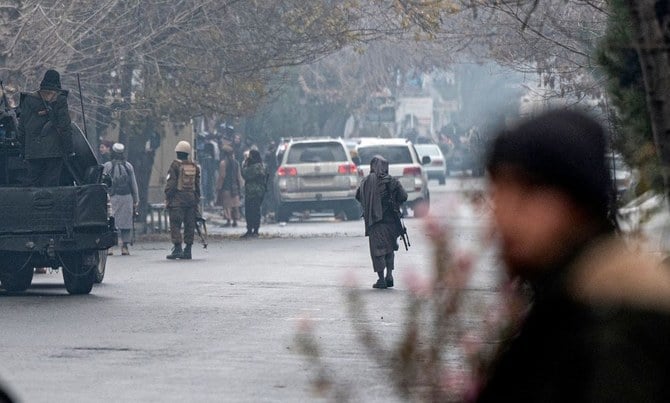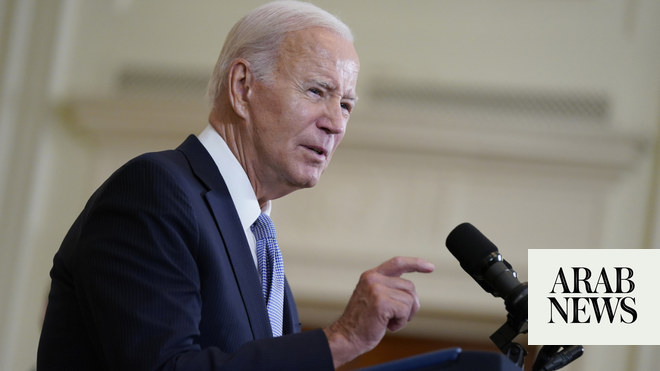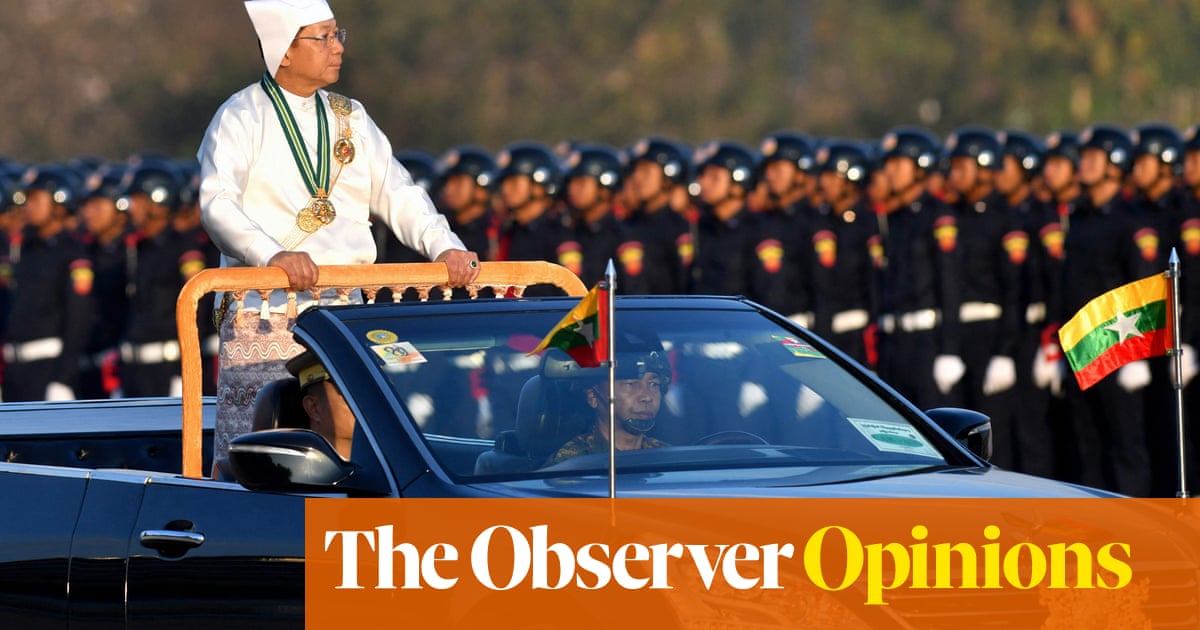
There has been no respite from terrorism for Afghanistan in 2023, but despite the formidable security challenges, Taliban leaders have contributed to the country’s instability by escalating their draconian measures at home and increasing its isolation and estrangement from the rest of the world.
On Jan. 11, terrorists attacked a target near the Ministry of Foreign Affairs in Kabul, killing and injuring scores of civilians. The terrorist group Daesh, through its local Khorasan branch, immediately claimed responsibility. Earlier, on Jan. 1, it also claimed responsibility for a suicide attack on Kabul airport.
During 2022, there appeared to be at least one shooting or explosion every week in Kabul alone, according to announcements by the Taliban, although experts believe that the tally was higher, as the group may underreport such incidents as they undermine their claims of bringing peace to the country. One of Daesh-K’s key targets are foreigners, especially those whom it perceives as potential investors.
There have been universal condemnations of these terrorist acts. After the Jan. 11 attack, the UN Security Council convened immediately and called for holding “perpetrators, organizers, financiers and sponsors of these reprehensible acts of terrorism accountable and bring them to justice.” It urged all states, in accordance with their obligations under international law and relevant UNSC resolutions, to “cooperate actively with all relevant authorities in this regard.”
Because of the bloody history between the Taliban and Daesh-K, which go back to at least 2015, it is expected that the Taliban will try to investigate the group’s attacks and punish the culprits, but many are skeptical about the Taliban’s capacity to get the job done. They also doubt their willingness to go after other terrorist groups known to have an active presence in Afghanistan, including Al-Qaeda and Tehreek-e-Taliban Pakistan.
The Taliban have maintained that they will not allow foreign actors to use Afghan territory against any other country, but there are well-grounded fears that they lack the capacity to halt Daesh-K terrorism. Because of internal disagreements and for historical reasons, it is also doubtful that the Taliban are willing to shut down groups such as Al-Qaeda and TTP, even if there are some in the movement who favor such action.
During the past two months, more than 100 attacks have taken place that are believed to have been carried out by TTP, including a suicide attack in Islamabad and the brazen capture of the Counter Terrorism Department in Bannu, about 300 km southwest of the Pakistani capital. Al-Qaeda’s affiliates are still active in Yemen, Africa and elsewhere, inspired by the mother organization sheltering in Afghanistan.
It is difficult for the world community to cooperate with the Taliban, even covertly, in the fight against terrorism because of the group’s own conduct since seizing power in August 2021. Their systematic violations of basic rights, especially the rights of women to education and work, make it difficult to make any deals with them. They have repeatedly broken promises to respect basic rights and freedoms, and instead have increased their restrictions on women and created a hostile environment against them. Their ban on women’s participation in humanitarian work is not only discriminatory, but quite dangerous in a country where the overwhelming majority of the population is in need of assistance and most of the relief workers before the ban were women.
Harassment and physical abuse against women, especially those expressing their views on their exclusion from the workplace and from schools, have increased since the Taliban came to power. One of the latest attacks on women was the assassination on Sunday of Mursal Nabizada, a former member of Afghanistan’s parliament. She and her guard were killed at her home in Kabul, police said. No one has been charged with the killing. Nabizada stayed in the country after the Taliban dissolved parliament in 2021, when many other politicians fled.
In addition, the Taliban have also failed to form a truly inclusive government to include non-Taliban, which constitute a majority of the population, if you add women to Afghanistan’s sizable ethnic, religious and political minorities.
Opposition to the Taliban’s rule appears to have grown significantly. Calls for armed resistance have also grown, threatening to further destabilize the country and increase the suffering of ordinary Afghans.
In their own special ways, the Taliban and the terror groups are holding Afghanistan hostage and making it difficult for the rest of the world to extend help, bring peace and stability, or provide humanitarian assistance to the beleaguered country.
But despite these difficulties, the world should not abandon Afghanistan’s 40 million people. Fighting terrorism is one of the important things that the world community can do, starting with Daesh-K.
Despite the difficulties, the world should not abandon Afghanistan’s 40 million people.
Dr. Abdel Aziz Aluwaisheg
Since quitting Afghanistan in 2021, the US has used “over-the-horizon” security capabilities to deal with terrorist threats from Afghanistan, as in the assassination of Al-Qaeda leader Ayman Al-Zawahiri last July. It has not sought to cobble together a coalition akin to the Global Coalition Against Daesh, which was set up in 2014 and still operates against the terror group in Iraq and Syria, where it is committed to “degrading and ensuring Daesh’s enduring defeat,” according to its official mission statement.
Extending the geographical mandate of the 85-member global coalition to deal operationally with Daesh-K appears to be more practical than creating a new body. Beyond the military campaign in Iraq and Syria, the coalition has publicly committed to tackling Daesh’s financing and economic infrastructure; preventing the flow of foreign terrorist fighters across borders; supporting stabilization and the restoration of essential public services to areas liberated from Daesh; and countering the group’s propaganda. In theory, Daesh-K would fall under these general objectives, but the coalition has not extended its military operations there.
Degrading Daesh-K’s capabilities would be in the interest of the Taliban and, as such, they may be willing to cooperate with or at least acquiesce to international efforts against the group. Such cooperation, albeit at arm’s length, could open the way for work against other terror groups operating or sheltering in Afghanistan. That, in turn, could lead to dealing with other pressing issues, including the Taliban’s treatment of women and minorities.
Dr. Abdel Aziz Aluwaisheg is the GCC assistant secretary-general for political affairs and negotiation, and a columnist for Arab News. The views expressed in this piece are personal and do not necessarily represent GCC views. Twitter: @abuhamad1












